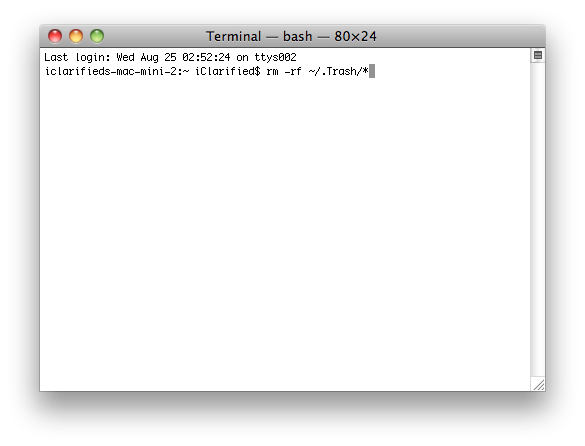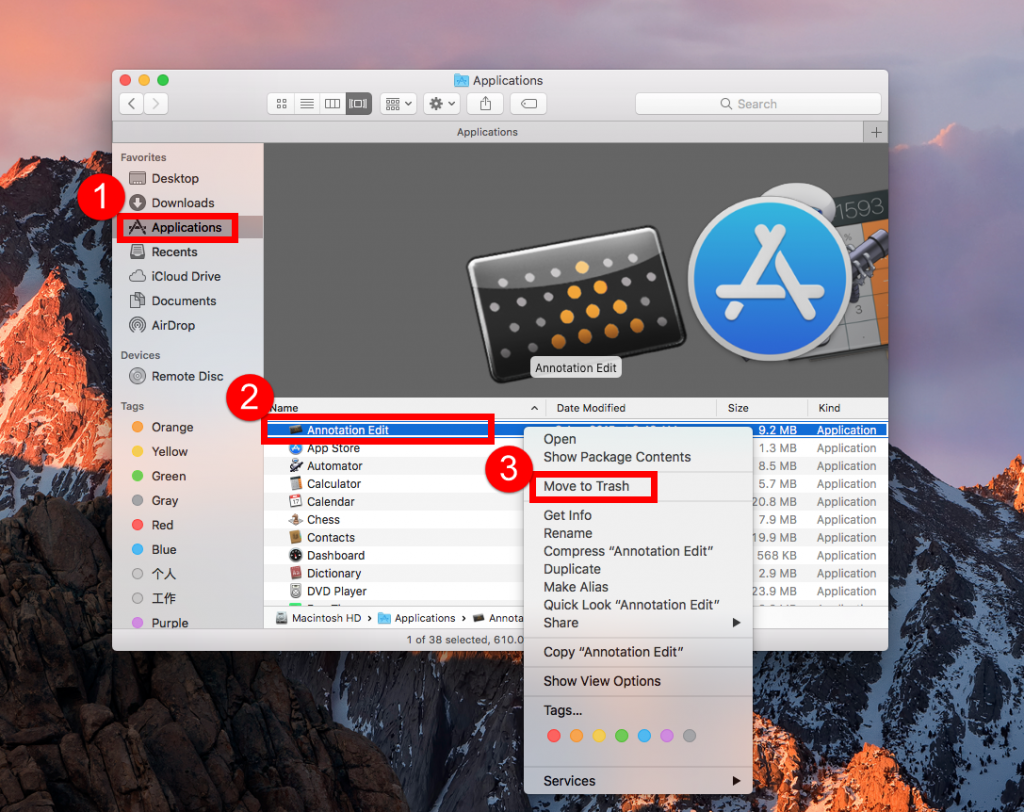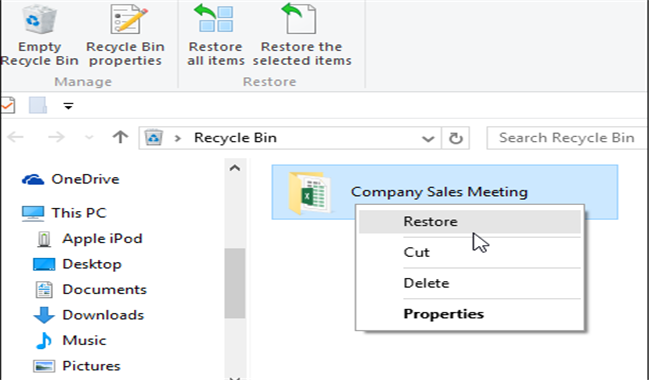

For that, we will switch our current working directory to the trash directory by utilizing the “ cd” command. First of all, we will check the content of our trash directory. This directory is also known as the “ Ubuntu trash directory”. If you want to empty your system trash using the rm command in the terminal, then follow the below-given procedure:įirst of all, we will open up our Ubuntu terminal by pressing “ CTRL+ALT+T“ you can also type “ terminal” in the application’s search bar as follows:įiles and directories present in a user’s trash are stored in the “. In the Ubuntu terminal, the “ rm” command is used for removing or deleting the files that are no longer required. Instead of utilizing the Ubuntu GUI, you can use the popular “ rm” command for erasing all of the contents present inside the trash in a single go. In this situation, removing a single file will be a time-consuming process. Mac retains your deleted files in Trash folder when you delete them by the following ways: Pressing Command + Delete keys.
#Mac trash folder operations how to#
So let’s start! How to empty trash from Ubuntu terminal using rm commandĭeleting files from GUI trash can take a long time, or it can also cause your computer to hang up. Confirm your choice to move the file to the trash folder. Then, press both Command and Delete keys at the same time.

Locate the file which you wish to delete and select it. This article will show you how to empty trash from Ubuntu terminal using two different methods. Mac has made it very easy for users to delete trash simply by using the keyboard shortcuts.
#Mac trash folder operations free#
This operation will also free up some space from your system that can store other crucial data.Įach Linux distribution has its methods for emptying the trash. You can also empty your system trash to get rid of unwanted folders and files. While working in an Ubuntu, if you delete a file or directory from your system, the system moves that file to the trash folder.

The “ Recycle Bin” in Windows and “ Trash” in Ubuntu are both utilized to store deleted files and restore them at any time. Ubuntu is the widely used desktop operating system in the open-source community.


 0 kommentar(er)
0 kommentar(er)
